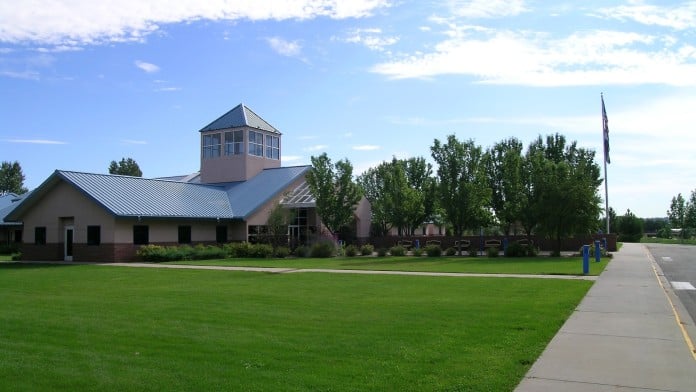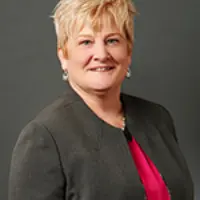I was at cleo wallace from 96 to 98 I want to know Hi I just set up a reunion when my Past. Teachers, my friends that I made there we were also close and some of the staff members. When I was there I used to have so much feel like I have good memories bad memories but mostly ...
About Devereux Advanced Behavioral Health – Cleo Wallace
Devereux Advanced Behavioral Health was a national behavioral health service provider that also offered substance use disorder (SUD) as a co-occurring disorder treatment in Westminster, Colorado. This facility is now closed, but they primarily focused on mental health in adolescent populations. Specifically, they provided care for people with complex behavioral, emotional, and psychiatric needs.
Being located in Westminster, you had access to a wide range of relaxing activities that could serve as a therapeutic complement to your overarching care plan. This included Stanley Lake Regional Park and Westminster City Park which are two fantastic green spaces. There were also plenty of nearby community resources and amenities that could have been integrated into an aftercare plan.
Inpatient Behavioral Health Support
While Devereux could provide SUD treatment support for adolescents struggling with addiction, this was not the primary role of this facility. The evidence based therapeutic treatment programs were primarily focused on individuals with severe behavioral or emotional health challenges. The intensive program was designed to focus on crisis stabilization, skill building, and even creating an effective aftercare plan for when a patient will be released.
You could enjoy the suburban campus which featured plenty of outdoor spaces for recreational activities as well as the modern layout which was designed with adolescents in mind.
Working Together
Another key feature about Devereux is that this facility worked to support children who were faced with child welfare and juvenile justice concerns. Likewise, trauma informed care was a priority since many individuals may had traumatic backgrounds that contributed to their current situations. This facility strived to encourage independence so that children could manage daily life with healthier coping skills.
Devereux Advanced Behavioral Health accepted most insurance plans and select government funds.
Latest Reviews
Rehab Score
Gallery


Other Forms of Payment
Self-pay involves paying for treatment out of your own pocket. You can use savings or credit, get a personal loan, or receive help from family and friends to fund your treatment. If you don't have insurance or your insurance plan doesn't cover a specific program, self-pay can help ensure you still get the care you need.
Private insurance refers to any kind of healthcare coverage that isn't from the state or federal government. This includes individual and family plans offered by an employer or purchased from the Insurance Marketplace. Every plan will have different requirements and out of pocket costs so be sure to get the full details before you start treatment.
Medicaid is a state based program that helps lower-income individuals and families pay for healthcare. Medicaid covers addiction treatment so those enrolled can use their coverage to pay for rehab. When a program accepts Medicaid the client often pays very little or nothing out of their own pocket.
Financial aid can take many forms. Centers may have grants or scholarships available to clients who meet eligibility requirements. Programs that receive SAMHSA grants may have financial aid available for those who need treatment as well. Grants and scholarships can help you pai for treatment without having to repay.
Addiction Treatments
Levels of Care
Outpatient programs are for those seeking mental rehab or drug rehab, but who also stay at home every night. Devereux Colorado’s Outpatient Program is staffed by licensed therapists and board-certified psychiatrists to provide individual and family therapies, psychological testing, and psychiatric evaluations and medication management services.
They provide intensive residential and day treatment services to both males and females ages 12 to 21. Devereux Colorado is able to provide patients with the intensive psychiatric treatment they need within a highly structured and therapeutic setting. Youth admitted to Devereux Colorado must meet the criteria for a DSM-IV diagnosis and have mental health needs that are best-served in a residential setting.
Intervention services helps family or friends of addicts stage an intervention, which is a meeting in which loved ones share their concerns and attempt to get an addict into treatment. Professional intervention specialists can help loved ones organize, gather, and communicate with an addict. They can guide intervention participants in describing the damage the addict's behavior is causing and that outside help is necessary to address the addiction. The ideal outcome of an intervention is for the addict to go to rehab and get the help they need.
Each youth is paired with a Transition Specialist with comprehensive knowledge of resources in specific regions that youth and families may need. Transition Specialists will assess and develop an individualized plan for each youth, with may include the following: Ongoing Assessment, Mentoring, Restorative Justice, Health and Safety, Housing, Employment and Career Development, Educational Support, and Independent Living Skills.
Devereux Colorado’s Independent Living Program provides youth with the opportunity to learn independent living skills while residing in a supportive environment. By providing stable housing and life skills coaching, each participating youth will acquire the necessary skills to be independently successful in the community.
Treatments
Mental health rehabs focus on helping individuals recover from mental illnesses like bipolar disorder, clinical depression, anxiety disorders, schizophrenia, and more. Mental health professionals at these facilities are trained to understand and treat mental health issues, both in individual and group settings.
Programs
Young adulthood can be an exciting, yet difficult, time of transition. Individuals in their late teens to mid-20s face unique stressors related to school, jobs, families, and social circles, which can lead to a rise in substance use. Rehab centers with dedicated young adult programs will include activities and amenities that cater to this age group, with an emphasis on specialized counseling, peer socialization, and ongoing aftercare.
Clinical Services
Animal therapy (aka pet therapy or animal-assisted therapy) can be very healing, as it allows patients to bond with animals, who give unconditional love. This is particularly useful for those who suffered trauma by the hands of people, who may be able to trust and form closer attachments to animals than humans at certain stages of rehabilitation.
Cognitive Behavioral Therapy (CBT) is a therapy modality that focuses on the relationship between one's thoughts, feelings, and behaviors. It is used to establish and allow for healthy responses to thoughts and feelings (instead of unhealthy responses, like using drugs or alcohol). CBT has been proven effective for recovering addicts of all kinds, and is used to strengthen a patient's own self-awareness and ability to self-regulate. CBT allows individuals to monitor their own emotional state, become more adept at communicating with others, and manage stress without needing to engage in substance abuse.
Creativity is inherently healing, and can help those in recovery express thoughts or feelings they might not otherwise be able to. Creative arts therapy can include music, poetry/writing, painting, sculpting, dance, theater, sandplay, and more. Unlike traditional art, the final product matters far less than the experience of creation and expression itself.
Dialectical Behavior Therapy (DBT) is a modified form of Cognitive Behavioral Therapy (CBT), a treatment designed to help people understand and ultimately affect the relationship between their thoughts, feelings, and behaviors. DBT is often used for individuals who struggle with self-harm behaviors, such as self-mutilation (cutting) and suicidal thoughts, urges, or attempts. It has been proven clinically effective for those who struggle with out-of-control emotions and mental health illnesses like Borderline Personality Disorder.
Equine therapy, aka equine-assisted therapy (EAT), is a form of experiential therapy that involves interactions and activities with horses. It does not necessarily involve riding horses, but all activities related to horses, such as feeding, grooming, haltering and leading them. A mental health professional frequently oversees the activities (often in conjunction with a horse professional), and helps patients process their thoughts, feelings, and behavior patterns during and/or after the interaction.
When serving the youth in their program, they also focus on the family. At Devereux Colorado, they use the broad definition of family. It may include a mother, father, foster family, guardian, or another significant adult in the child’s life. Family therapy is provided by the clinician one to two times per week in accordance with the child’s specific treatment needs. Family therapy aims to teach both the client and family skills not only to maintain gains made during treatment, but facilitate further improvement independent of therapy.
Group therapy is provided for all clients. The format and frequency of group therapy depends on the treatment needs of clients. A variety of group therapies are available, including intensive group psychotherapy, social skills training, sexual abuse survivors group, psycho educational groups, anger management groups, substance abuse groups, and community meetings.
Individual therapy is generally provided 1-2 times per week by the child's clinician in accordance with the child's specific treatment needs. In addition to traditional therapy sessions, individual therapy may consist of in-vivo applications of coping and problem-solving skills, called guided practice. Guided practice has been shown to increase generalization of newly acquired skills. All individual therapy is conducted by master’s level, licensed or licensed-eligible clinicians under supervision.
Life skills trainings involve all the skills a person must have in order to function successfully in the world. TDevereux Colorado’s Employment Training Program is designed to provide today’s youth with the guidance required to get and maintain employment. With varying degrees of guidance, the Employment Training Program includes three tracks to allow for the flexibility necessary to encourage growth in all types of candidates. From ten work sites on the Devereux Colorado campus, to working with businesses in the community, the client will be supported by a trained job coach to achieve maximum growth.
Nutrition therapy, aka medical nutrition therapy (MNT), is a way of treating physical, emotional, and medical conditions through diet. Specific dietary plans are designed by professional nutritionists or registered dietitians, and patients follow them in order to positively affect their physical and mental health.
Trauma therapy addresses traumatic incidents from a client's past that are likely affecting their present-day experience. Trauma is often one of the primary triggers and potential causes of addiction, and can stem from child sexual abuse, domestic violence, having a parent with a mental illness, losing one or both parents at a young age, teenage or adult sexual assault, or any number of other factors. The purpose of trauma therapy is to allow a patient to process trauma and move through and past it, with the help of trained and compassionate mental health professionals.
Amenities
-
Private Setting
Staff & Accreditations
Staff

Carl E. Clark II, M.S.
President & CEO

Robert C. Dunne, CPA
Senior VP & CFO

Rhea Fernandes, Psy.D.
Executive VP & COO

Yolanda Graham, M.D., FAPA, DFAACAP
Senior VP & Chief Clinical & Medical Officer

Leah S. Yaw, M.S.
Senior VP & Chief Strategy Officer

Jacalyn Auris, Ed.D.
VP of Educational Services

Melanie Beidler, M.S.
VP of Operations Children’s Services

Stephen Bruce, M.Ed., BCBA
VP of Operations Adult Services
Accreditations

The Joint Commission, formerly known as JCAHO, is a nonprofit organization that accredits rehab organizations and programs. Founded in 1951, the Joint Commision's mission is to improve the quality of patient care and demonstrating the quality of patient care.
Joint Commission Accreditation: Yes